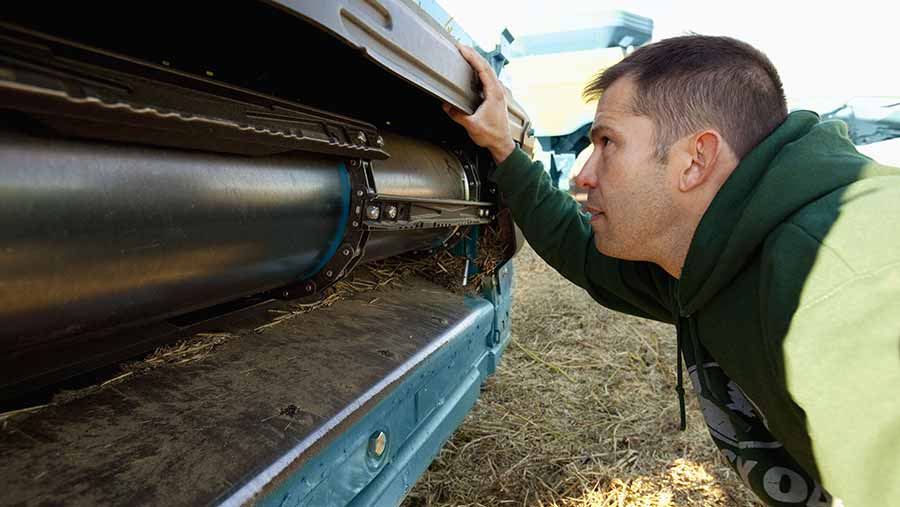Opinion: Farm inspection regime in need of an overhaul
 © Design Pics Inc/REX/Shutterstock
© Design Pics Inc/REX/Shutterstock No one really likes an inspection. There is no upside. It is either a pass or a fail. No sense of elation, just relief or disappointment.
Farming has several different types of inspection. The annual farm assurance check-up, machinery safety inspections, and the dreaded Rural Payments Agency (RPA) inspection, to name but a few.
So why do I deem the first two acceptable, yet fear for the call from the RPA inspector?
See also: How to avoid cross-compliance penalties
Bluntly, the methodology for farm assurance and machinery safety checks are consistent and the guidelines clear. The outcome of a fail is equally transparent. You are not accredited until you have passed, or your machine cannot be used until it is deemed safe.
Moreover, the inspection is routine; it takes place annually and, if you fail, you are told there and then what needs to be improved to obtain a pass.
 Ian Pigott farms 700ha in Hertfordshire. Ian is also the founder of Open Farm Sunday
Ian Pigott farms 700ha in Hertfordshire. Ian is also the founder of Open Farm SundayWith an RPA inspection – be it for cross-compliance, Countryside Stewardship or the whole shebang – there are too many grey areas.
Firstly, what and how it is being measured is unclear.
I have had a lot of experience of such inspections (more of that later), and seldom do inspectors agree on the precise size of a measured parcel of my pollen and nectar or floristic margins.
Why should the farmer be penalised if they too arrive at a slightly different figure?
Worry caused by delays
But perhaps more irksome is the time taken by the RPA to conclude an inspection and communicate with the farmer in a detailed and constructive way where they have found faults.
The RPA appears oblivious to the worry these delays cause farmers. Inspections should have a timescale within which they start and are concluded.
I should declare an interest. I am in the midst of an inspection by the RPA. I hear you draw a deep intake of breath. Taking a swipe at the RPA while under their close scrutiny may not be wise, but what better time to recommend change?
Let me clarify. I have been in the middle of an inspection for the past two-and-a half-years. And, while I have been patiently awaiting the results of that 2015 inspection, I have been selected for another.
However, rules are rules and farmers are selected randomly. But, as a British taxpayer, are multiple inspections on the same holding a good use of the civil purse?
I am not alone. Far too many farmers are having payments withheld while awaiting the conclusion of an inspection; being penalised twice, if you will.
Opportunity to improve biodiversity
The system of inspection needs overhauling. More give and take is required. I fully appreciate that the RPA must comply with umpteen systems and regulations. However, I also subscribe to the mantra that you catch a lot more wasps with honey than vinegar.
Inspections could be used as an opportunity for improving the biodiversity that a farm can deliver through the inspector’s recommendations and advice.
They are walking and inspecting the whole farm and should use their time more effectively. The current implementation is geared towards finding fault with the farmer, not improving the farm.
Defra secretary Michael Gove has made his intention clear. Farmers should, in future, only be rewarded for delivering public good. A simple formula that allows an RPA inspector more flexibility for farms with a greater commitment to the environment and public access would offer a number of benefits.
A faster inspection would reduce cost to the taxpayer, may encourage more farmers to enter Countryside Stewardship and, with positive feedback from the inspector, may improve the public good delivered by the farm.
